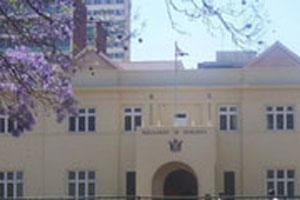
Zimbabwe is currently in the historic process of writing a new constitution, but this operation has turned out to be even more overwhelming and trickier than anticipated.
Report by Youth Forum
The process is being carried out as one of the major deliverables of the Global Political Agreement (GPA), which was signed on September 15 2008. The current constitution is widely regarded as inadequate and has many shortcomings that need to be addressed, despite it having been amended a record 19 times.
The contest to control Zimbabwe’s drafting of a new constitution has heated up as the draft produced by the constitutional parliamentary committee (Copac) is taken to the Second All-Stakeholders’ Conference.
Tomorrow, the draft will be debated by more than 1 000 delegates, presumably businesspeople, representatives from churches, non-governmental organisations and representatives of political parties. After the conference, the draft will be taken to Parliament, where, after approval by legislators, it will then be gazetted and put to a referendum.
But what is it that they will be discussing? The majority of the Zimbabweans are not aware of what is stated in this draft constitution and what it means for them. This is a shortcoming on the part of Copac. In that regard, the Zimbabwe Lawyers for Human Rights (ZLHR) recently launched a summarised constitution analysis guidebook , which has an overview of each chapter of the draft constitution, pointing out what is progressive and what remains problematic. As expected, there is an overwhelming amount of problematic issues that still need to be addressed. The ZLHR chairperson, Andrew Makoni explained that the booklet is a simplified constitutional awareness tool ahead of the conference.
Another major issue that has evolved ever since the constitution-drafting process began, is the fact that the process has been hijacked by the country’s political parties. The two MDCs have so far resisted efforts by President Mugabe’s Zanu PF party to include nearly 266 amendments to the draft, while Zanu PF also has objected to a number of proposals in the draft.
Some of these include the clipping of the president’s executive powers, security sector reforms, dual citizenship and the devolution of power from central government. The former ruling party is also keen to retain the death penalty, which the MDC parties are sweating to have repealed.
- Chamisa under fire over US$120K donation
- Mavhunga puts DeMbare into Chibuku quarterfinals
- Pension funds bet on Cabora Bassa oilfields
- Councils defy govt fire tender directive
Keep Reading
There are signs; however, that Zanu PF will not allow the draft to go unchallenged. The party plans to discredit the draft and show how Copac “ignored the people’s views” by demanding that the national report, which details information gathered during the constitutional outreach exercise, be supplied to delegates alongside the draft.
Civil society groups remain opposed to the process, which they argue has become a battlefield for the country’s three main political parties. The concern is that these three parties have once again decided to make this important process a political party event, while excluding the voice of the people.
The hope however, for many CSOs was that this second stakeholders conference would be a space for ordinary people and hence must not be hijacked by political players who have been active in the constitution-making process for the past three and half years.
However, events on the ground have proved otherwise.
It is a shame that those parties which we have trusted to lead cannot put the nation before their political party issues. The constitution is not a document that should be used to propel one party into power or be used to score political points. There should be a clear distinction between the legal issue, which constitution-making is, and party politics.
Genuine public participation is a prerequisite and this means the public should be guaranteed social inclusion, personal security, civic education and good channels of communication between all levels of society among other things in order to facilitate this process.
Some would argue that the Copac constitution-making process was people-driven, given that a national outreach programme was undertaken and this culminated in the production of the “National Report” capturing the views of the people. Nonetheless, arguments and questions will arise as to whether all that which was gathered from the people has been included or represented in this report and how it would then be put into what is to be our supreme law, the constitution. When all the views and opinions are gathered; when all is said and done, will it not be down to a hand-picked elite group to decide whether what we as Zimbabweans have made as contributions, is worth to be in our national constitution?











